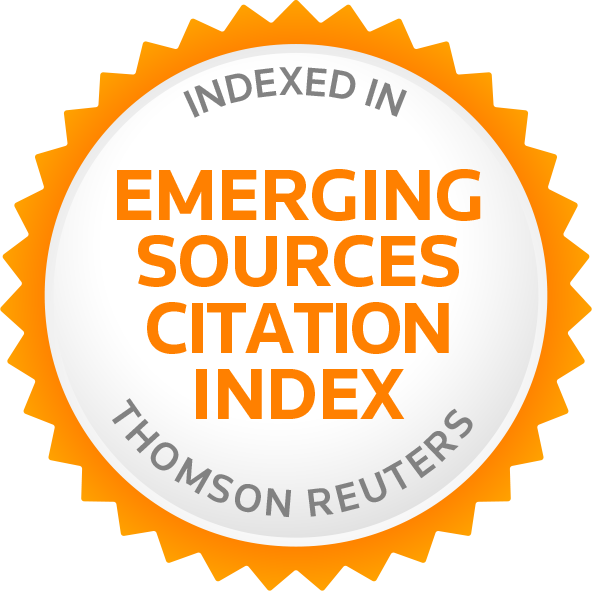Regionalization understood as development
Keywords:
regions, development, planning, productive systemAbstract
In 2011, Daniel Scioli, the governor at the time of the province of Buenos Aires (Argentina), pushed a Regionalization Plan that proposed the devolution of provincial system to the regions, anchored in the productive sector, and a vigorous simultaneous process of decentralization and autonomy of municipalities. From there, were investigated different experiences where the ideas behind this current, as a way of approaching the comprehensive knowledge of the subject and to try to unravel the reasons that led to the proposed bill to Buenos Aires was rejected.Downloads
References
FISCH, Ricardo (1932). Cuestiones patagónicas. Tierras fiscales y
otros problemas. Buenos Aires: Imprenta Kidd.
SANTOS, Milton [1988] (1996). Metamorfosis del espacio habitado.
Barcelona: Oikus-tau.
SANTOS, Milton (2004). Por otra globalización: del pensamiento
único a la conciencia universal. Bogotá: Convenio Andrés Bello.
SORIANO, Alberto (1956). «Aspectos ecológicos y pastoriles de la
vegetación patagónica relacionada con su estado y su capacidad
de recuperación». Revista de Investigaciones Agrícolas, 10 (4), pp.
-386.
WILLIS, Bailey (1914). El Norte de la Patagonia. Naturaleza y riquezas. Tomo I. Buenos Aires: Ministerio de Obras Públicas de la
República Argentina, Comisión de Estudios Hidrológicos.
REFERENCIAS ELECTRÓNICAS
Decreto N.° 1.425 (2014). «Ley de Regionalización Integral para
el Desarrollo Socioproductivo de la Patria». Gaceta oficial de la
República Bolivariana de Venezuela (2014, 18 de noviembre) [en
línea]. Recuperado de <http://www.asambleanacional.gob.ve/
uploads/documentos/doc_cda930a8d3ec807496d4f37c53069e-
c2bc4.pdf>.
AVN (2015, 22 de abril). «Instalarán plantas de maquinarias y viviendas en Zona Económica Morón-Puerto Cabello» [en línea].
Recuperado de <http://www.avn.info.ve/contenido/instalar%-
C3%A1n-plantas-maquinarias-y-viviendas-zona-econ%C3%B3mica-mor%C3%B3n-puerto-cabello>.
NOTICIAS24 (2014, 18 de noviembre). «Maduro firma 28 leyes Habilitantes, entre ellas una reforma a la Ley de Impuesto sobre la
Renta» [en línea]. Recuperado de <http://www.noticias24.com/
venezuela/noticia/264209/maduro-continuara-la-ofensiva-habilitante-con-una-jornada-de-trabajo-de-leyes-economicas/>.
PLAN DE LA PATRIA (2013). Segundo Plan Socialista de Desarrollo
Económico y Social de la Nación 2013-2019 [en línea]. Recuperado
de <http://www.asambleanacional.gob.ve/uploads/botones/bot_
c61a54764da3be94c3715079a7e74416eba.pdf>.
Published
How to Cite
Issue
Section
License
The acceptance of an original by the journal implies the non-exclusive transfer of the patrimonial rights of the authors in favor of the publisher, who allows the reuse, after its edition (postprint), under a Creative Commons License Attribution-NonCommercial-ShareAlike 4.0 International.
According to these terms, the material can be shared (copy and redistribute in any medium or format) and adapted (remix, transform and create another work from the material), provided that a) the authorship and the original source of their publication (magazine and URL of the work) are cited, b) is not used for commercial purposes and c) the same terms of the license are maintained.
The assignment of non-exclusive rights implies that after postprint in Oficios Terrestres authors may publish their work in any language, media and format; in that case, it is requested that they signal that the material was originally published by this journal.
Assignment also entails the authors’ authorization for the work to be collected by SEDICI, the institutional repository of the Universidad Nacional de La Plata, and for it to be indexed in the databases that the publisher thinks appropriate for enhancing the visibility of the published work and its authors.
In addition, the journal encourages authors to submit their works to other institutional and thematic repositories after their publication in Oficios Terrestres, under the assumption that offering society unrestricted access to scientific and academic production contributes to a greater exchange in global knowledge.







_(Custom)11.jpg)




.png)






















